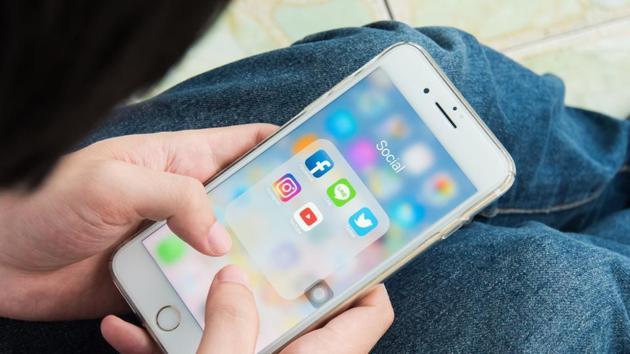Not Everything You Read on the Internet Is True
Don't believe everything you read on social media. Fake news travels faster online
Imitation data on the cyberspace travels faster than the truth, said a new study. And it is largely people who spread the misinformation, not robots.

False information on the cyberspace travels faster than the truth, researchers said on Thursday. But contrary to popular belief, it is largely people who spread the misinformation, not robots. The report in the journal Scientific discipline is the largest of its kind to date, and studied some 1,26,000 cascades on Twitter from 2006 to 2017. These contested news stories were tweeted by three one thousand thousand people over iv.5 million times.
To determine whether the news was true or false, researchers relied on six independent fact-checking organisations. "Falsehoods were 70% more likely to exist retweeted than the truth," said the report, led past researchers at the Massachusetts Establish for Technology (MIT).
"It also takes true stories nearly vi times as long to reach one,500 people as information technology does for false stories to reach the same number of people." Prior studies on the topic have been express to case studies or smaller samples. Researchers say false stories spread faster because of the "novelty hypothesis," which suggests people share these stories considering they are more surprising than existent news.
Falsehoods commonly inspired replies on Twitter expressing surprise, fearfulness and disgust, said the report. The truth tended to elicit sadness, anticipation, joy and trust. The study also plant that the amount of faux news on Twitter is increasing, and tends to spike during major events similar the US presidential elections of 2012 and 2016. However, the perpetrators exercise non tend to have huge followings.
In fact, those who spread false news "had significantly fewer followers, followed significantly fewer people, were significantly less active on Twitter, were 'verified' significantly less often and had been on Twitter for significantly less time," said the written report. The apply of automated Twitter "bots" has get a focus of FBI special counsel Robert Mueller'due south probe of alleged Russian interference in the 2022 Us presidential ballot.
These programs were used, according to an indictment by Mueller'southward function, to "sow discord in the US political system." At the end of February, Twitter issued new rules aimed at limiting the influence of bots on the social network.
Follow @htlifeandstyle for more
Shut Story
Source: https://www.hindustantimes.com/more-lifestyle/don-t-believe-everything-you-read-on-social-media-false-news-travels-faster-online/story-8v19nCjpXyAB93l77rUlKJ.html

0 Response to "Not Everything You Read on the Internet Is True"
Post a Comment